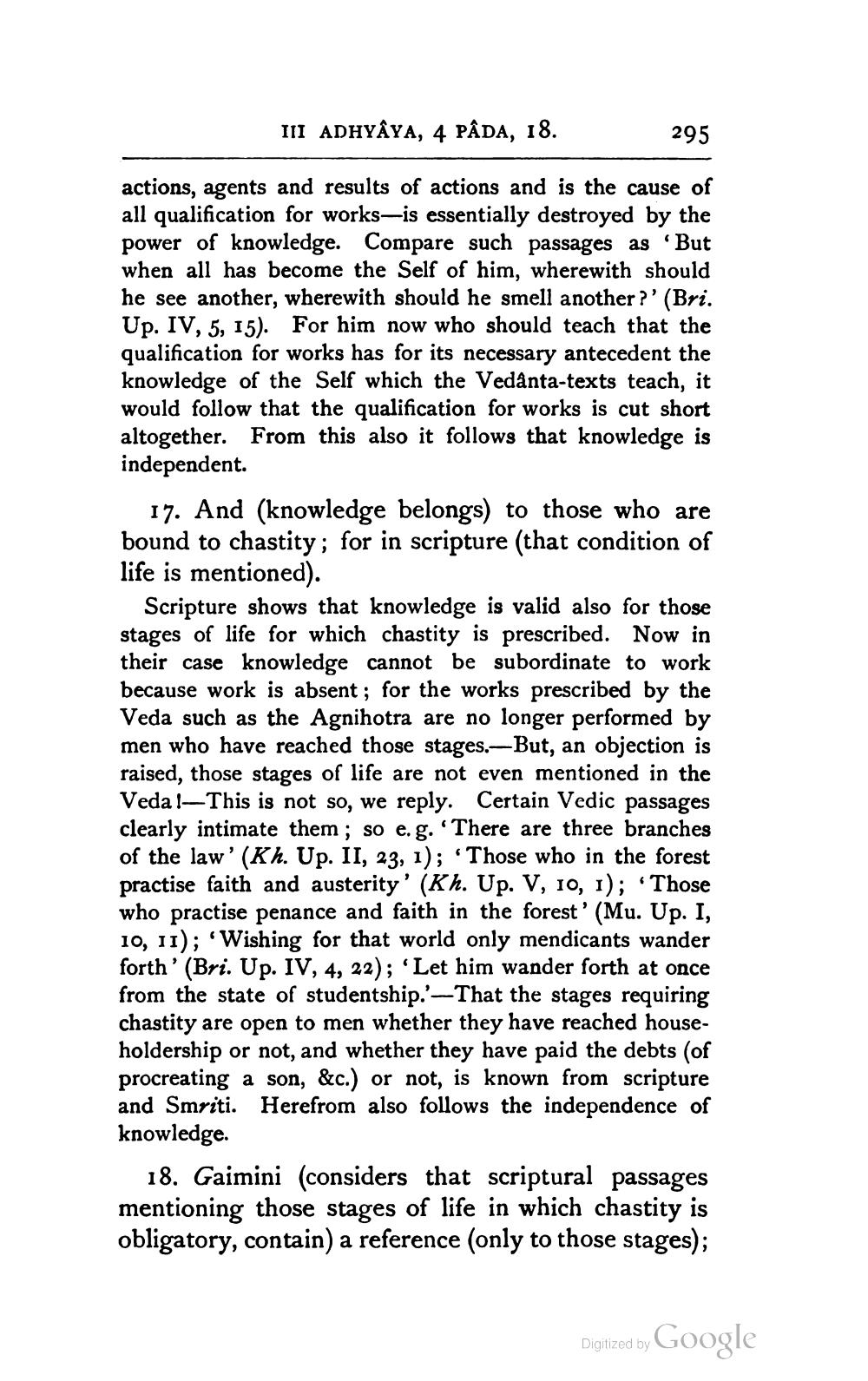________________
III ADHYAYA, 4 PÂDA, 18.
295
actions, agents and results of actions and is the cause of all qualification for works-is essentially destroyed by the power of knowledge. Compare such passages as 'But when all has become the Self of him, wherewith should he see another, wherewith should he smell another?' (Bri. Up. IV, 5, 15). For him now who should teach that the qualification for works has for its necessary antecedent the knowledge of the Self which the Vedanta-texts teach, it would follow that the qualification for works is cut short altogether. From this also it follows that knowledge is independent.
17. And (knowledge belongs) to those who are bound to chastity; for in scripture (that condition of life is mentioned).
Scripture shows that knowledge is valid also for those stages of life for which chastity is prescribed. Now in their case knowledge cannot be subordinate to work because work is absent; for the works prescribed by the Veda such as the Agnihotra are no longer performed by men who have reached those stages. But, an objection is raised, those stages of life are not even mentioned in the Veda! This is not so, we reply. Certain Vedic passages clearly intimate them; so e. g. 'There are three branches of the law' (Kh. Up. II, 23, 1); 'Those who in the forest practise faith and austerity' (Kh. Up. V, 10, 1); 'Those who practise penance and faith in the forest' (Mu. Up. I, 10, 11); 'Wishing for that world only mendicants wander forth' (Bri. Up. IV, 4, 22); 'Let him wander forth at once from the state of studentship.'-That the stages requiring chastity are open to men whether they have reached householdership or not, and whether they have paid the debts (of procreating a son, &c.) or not, is known from scripture and Smriti. Herefrom also follows the independence of knowledge.
18. Gaimini (considers that scriptural passages mentioning those stages of life in which chastity is obligatory, contain) a reference (only to those stages);
Digitized by Google




